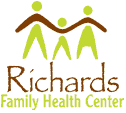Children's Health
Health Risks from Acetaminophen
INFANT TYLENOL IS 3-1/2 TIMES STRONGER THAN CHILDREN'S STRENGTH TYLENOLEarly in July Associated Press performed an important public service. They released a story which highlighted a serious public health problem. Parents, in particular, need to take note of this information.
Acetaminophen (Tylenol the most familiar brand) is extremely dangerous. When I was in school, our instructor in drug toxicology (who was a pharmacist and had practiced at LA County General Hospital) pointed out that acetaminophen was the leading cause of death by accidental poisoning in the pediatric population. What made the statistic even more startling was that the drug was almost always administered by the parents - with the intention of helping their child.
Acetaminophen poisoning is insidious. It destroys the liver, so they symptoms include: mild nausea, lack of appetite' diminished urination, lassitude, vomiting, and diarrhea. Late stage includes jaundice and kidney failure. The liver damage is irreversible and death occurs two weeks after poisoning, unless a transplant can be performed.
Recently, Johnson and Johnson has formulated a new grape flavored, infants' Tylenol. Unfortunately, it is 3-1/2 times more concentrated than the children's strength product. You must adjust the dosage downward to avoid overdosing your child. It is counterintuitive to many people to think of an infants' formula as being stronger than a children's formula.
These are not the first problems Johnson & Johnson has had with their acetaminophen products. And, children are not the only people at risk. Recently, a man on the East Coast (New York City, I believe) suffered complete liver destruction and survived only because of a liver transplant. He took acetaminophen daily and had 1 alcoholic drink every evening. The combination proved deadly to his liver.
Another man's liver was destroyed after exposure to lawn chemicals (pesticides) together with acetaminophen.
So, how can you protect yourself and your family?
> Keep a written log of when the dose was administered and how much was given. Keep this information with the bottle so that it is readily available.
> If you are using acetaminophen for any reason, avoid alcohol and dry cleaning agents. (All are liver toxic).
> If you are an adult who is not aspiring sensitive, an aspirin-based analgesic may be a better choice.
> Do not give aspirin to children under the age of 18 or to the elderly who have viral infections and high fevers. The danger is Reyes Syndrome which destroys the organs, including the liver. Acetaminophen was originally marketed as an alternative to aspirin for this situation.
The bottom line: All drugs have side effects and dangers. Be careful whenever you use pharmaceutical products. A fever is not a disease, it is evidence that the body's immune system is working properly. There are safe, natural methods of reducing a fever when it is absolutely necessary. For further information, send a manila envelope (suitable for 8-1/2" x 11") enclosures, with three stamps, to the RFHC and request our publication "The Ten Most Common Childhood Illnesses and What to Do About Them." It contains a wealth of information on safe and effective home care, as well as guidelines for when a visit to the doctor is mandatory.
Does this apply to you? If so, see our information on Consultations.
[TOP]
© 2011 Richards Family Health Center. This site or any part may not be reproduced without the written consent of Richards Family Health Center. N Rowan Richards, DC, DABCI, FIACA at 242 South Glendora CA 91741. 626 963 1678. email:richardsfhc@richardsfamilyhealth.com. This site is Not intended to dispense health advice or serve as a substitute for actual patient contact with a qualified healthcare provider. Our sole purpose is one of education. It is our expectation that our site can educate our visitors about the efficacy of some healthcare treatments that exist as an alternative to conventional medical wisdom.
PRIVACY POLICY: Richards Family Health Center takes your privacy very seriously. Be assured that we do not sell or rent your contact information to anyone.


